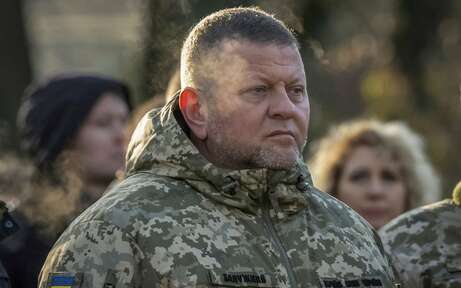On Ukraine – George Beebe, Anatol Lieven in Harper’s:
‘More than two years into Russia’s invasion, it is increasingly clear that the Ukrainian army is not capable of reconquering the territories lost to Russia; instead, without continued and massive Western aid, the Ukrainians will suffer eventual defeat owing to Russia’s huge economic and demographic superiority, and the long-term continuation of such aid cannot be guaranteed. Sanctions have not cratered Russia’s economy or crippled its war effort. Russia has corrected many of the problems that plagued its forces during the war’s first year and pursued an attrition strategy that is steadily exhausting Ukraine’s supply of fighters, emptying Western weapons stockpiles, and sapping U.S. and European political patience. Current trends are pointing not toward a lasting stalemate but toward Ukraine’s eventual collapse.’
(…)
‘The Biden Administration, for its part, is trying to sustain the Ukrainian defense in what has become a war of attrition, while deferring any serious talk of negotiations. The hope is that this strategy can succeed until at least after the U.S. elections, when it is likely either Joe Biden will be reconfirmed in office and be in a stronger domestic position to negotiate with President Vladimir Putin, or Ukraine will be Donald Trump’s problem.
This strategy is a risky one. The bloody attritional “stalemate” on most fronts in the First World War—which several military analysts have compared to the Ukraine war over the past year—ended in all cases with the victory of one side, while the other collapsed owing to the scale of its losses, the exhaustion of its nation’s economy, or both.’
(…)
‘In consequence, Russia has been able to greatly outcompete the West in the production of artillery shells, which are critical to attritional warfare and which Russia has been firing at more than three times the rate of the Ukrainians. It has also been able to buy huge quantities of ammunition from North Korea and drones from Iran. Western supplies of weaponry can only partly counterbalance this. Apart from anything else, the West cannot provide Ukraine with more troops to make up for Ukraine’s huge losses and difficulties in extending conscription.’
(…)
‘The only answer therefore is the one pursued in Cyprus over the past half century: to leave the territorial issue for future negotiation, while both sides promise not to change the armistice line through force.’
(…)
‘The first is the adoption of some version of Germany’s laws banning neo-Nazi parties and insignia. This would not require Ukraine to eliminate forces like the Azov regiment—-something that would spark violence in Ukraine and could even start a civil war. It would, however, be a strong symbolic marker of Ukraine’s move away from the nationalism that has come to characterize official and public discourse in recent years, such as forbidding the use of the Russian language in education and culture, suppressing the Russian Orthodox Church in Ukraine, and banning opposition parties. These policies are all incompatible with Ukraine’s hopes of future membership in the European Union.’
(…)
‘In the balance of victory and defeat, a historian of Ukraine might also reflect that, while a settlement like this would be extremely painful, it would nonetheless represent a great Ukrainian achievement, as independence, security, and a Western path for 80 percent of Ukraine would reverse not only Putin’s ambitions when he started this war, but the past three hundred years of Russian domination of most of Ukraine. To be sure, this would be a qualified victory, but it is still vastly better than what Ukraine is likely to become if this war continues: a ruined, depopulated, and truncated rump state with severely reduced chances of ever achieving membership in the European Union. The Biden Administration has declared Ukrainian victory to be vital to Western security, but it has never defined what it means by victory. One thing, however, should be obvious: a qualified victory would be a great deal better than the outright defeat that we have good reason to fear if the war continues.’
Read the article here.
The war of attrition in Ukraine is in Russia’s favor. The lack of interest in Ukraine speaks volumes.
But for peace negotiations with Putin bigger catastrophes are needed than the current one in Ukraine.
In general, peace is preceded by catastrophes.
